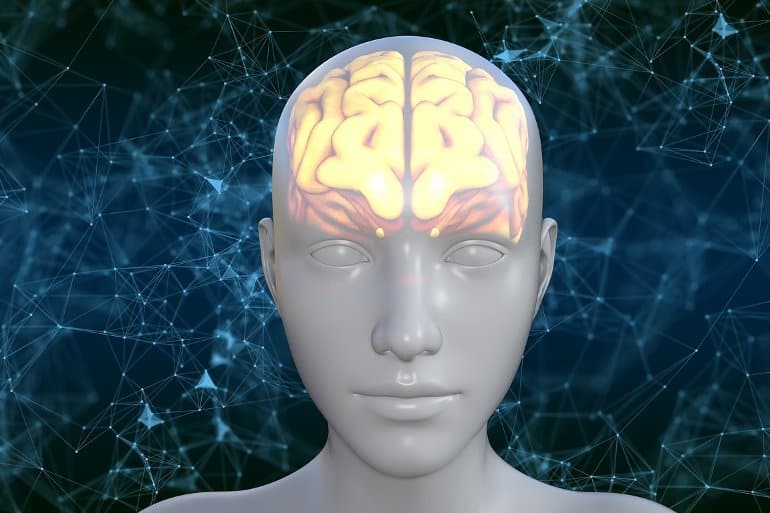Summary: A new ethical framework proposes researchers should already assume brain organoids already have consciousness, rather than waiting for research to confirm they do.
Source: Kyoto University
One way that scientists are studying how the human body grows and ages is by creating artificial organs in the laboratory. The most popular of these organs is currently the organoid, a miniaturized organ made from stem cells. Organoids have been used to model a variety of organs, but brain organoids are the most clouded by controversy.
Current brain organoids are different in size and maturity from normal brains. More importantly, they do not produce any behavioral output, demonstrating they are still a primitive model of a real brain. However, as research generates brain organoids of higher complexity, they will eventually have the ability to feel and think.
In response to this anticipation, Associate Professor Takuya Niikawa (Kobe University) and Assistant Professor Tsutomu Sawai (Kyoto University’s Institute for the Advanced Study of Human Biology (WPI-ASHBi)), in collaboration with other philosophers in Japan and Canada, have written a paper on the ethics of research using conscious brain organoids.
The paper can be read in the academic journal Neuroethics.
Working regularly with both bioethicists and neuroscientists who have created brain organoids, the team has been writing extensively about the need to construct guidelines on ethical research. In the new paper, Niikawa, Sawai and their coauthors lay out an ethical framework that assumes brain organoids already have consciousness rather than waiting for the day when we can fully confirm that they do.
“We believe a precautionary principle should be taken,” Sawai said. “Neither science nor philosophy can agree on whether something has consciousness. Instead of arguing about whether brain organoids have consciousness, we decided they do as a precaution and for the consideration of moral implications.”
To justify this assumption, the paper explains what brain organoids are and examines what different theories of consciousness suggest about brain organoids, inferring that some of the popular theories of consciousness permit them to possess consciousness.
Ultimately, the framework proposed by the study recommends that research on human brain organoids follows the ethical principles similar to those for animal experiments. Therefore, recommendations include using the minimum number of organoids possible and doing the upmost to prevent pain and suffering while considering the interests of the public and patients.

“Our framework was designed to be simple and is based on valence experiences and the sophistication of those experiences,” said Niikawa.
This, the paper explains, provides guidance on how strict the conditions for experiments should be. These conditions should be decided based upon several criteria, which include the physiological state of the organoid, the stimuli to which it responds, the neural structures it possesses, and its cognitive functions.
Moreover, the paper argues that this framework is not exclusive to brain organoids. It can be applied to anything that is perceived to hold consciousness, such as fetuses, animals and even robots.
“Our framework depends on the precautionary principle. Something that we believe does not have consciousness today may, through the development of consciousness studies, be found to have consciousness in the future. We can consider how we ought to treat these entities based on our ethical framework,” conclude Niikawa and Sawai.
About this neuroethics research news
Author: Press Office
Source: Kyoto University
Contact: Press Office – Kyoto University
Image: The image is in the public domain
Original Research: Open access.
“Human Brain Organoids and Consciousness” by Takuya Niikawa et al. Neuroethics
Abstract
Human Brain Organoids and Consciousness
This article proposes a methodological schema for engaging in a productive discussion of ethical issues regarding human brain organoids (HBOs), which are three-dimensional cortical neural tissues created using human pluripotent stem cells.
Although moral consideration of HBOs significantly involves the possibility that they have consciousness, there is no widely accepted procedure to determine whether HBOs are conscious.
Given that this is the case, it has been argued that we should adopt a precautionary principle about consciousness according to which, if we are not certain whether HBOs have consciousness—and where treating HBOs as not having consciousness may cause harm to them—we should proceed as if they do have consciousness.
This article emphasizes a methodological advantage of adopting the precautionary principle: it enables us to sidestep the question of whether HBOs have consciousness (the whether-question) and, instead, directly address the question of what kinds of conscious experiences HBOs can have (the what-kind-question), where the what-kind-question is more tractable than the whether-question. By addressing the what-kind-question (and, in particular, the question of what kinds of valenced experiences HBOs can have), we will be able to examine how much moral consideration HBOs deserve.
With this in mind, this article confronts the what-kind-question with the assistance of experimental studies of consciousness and suggests an ethical framework which supports restricting the creation and use of HBOs in bioscience.







